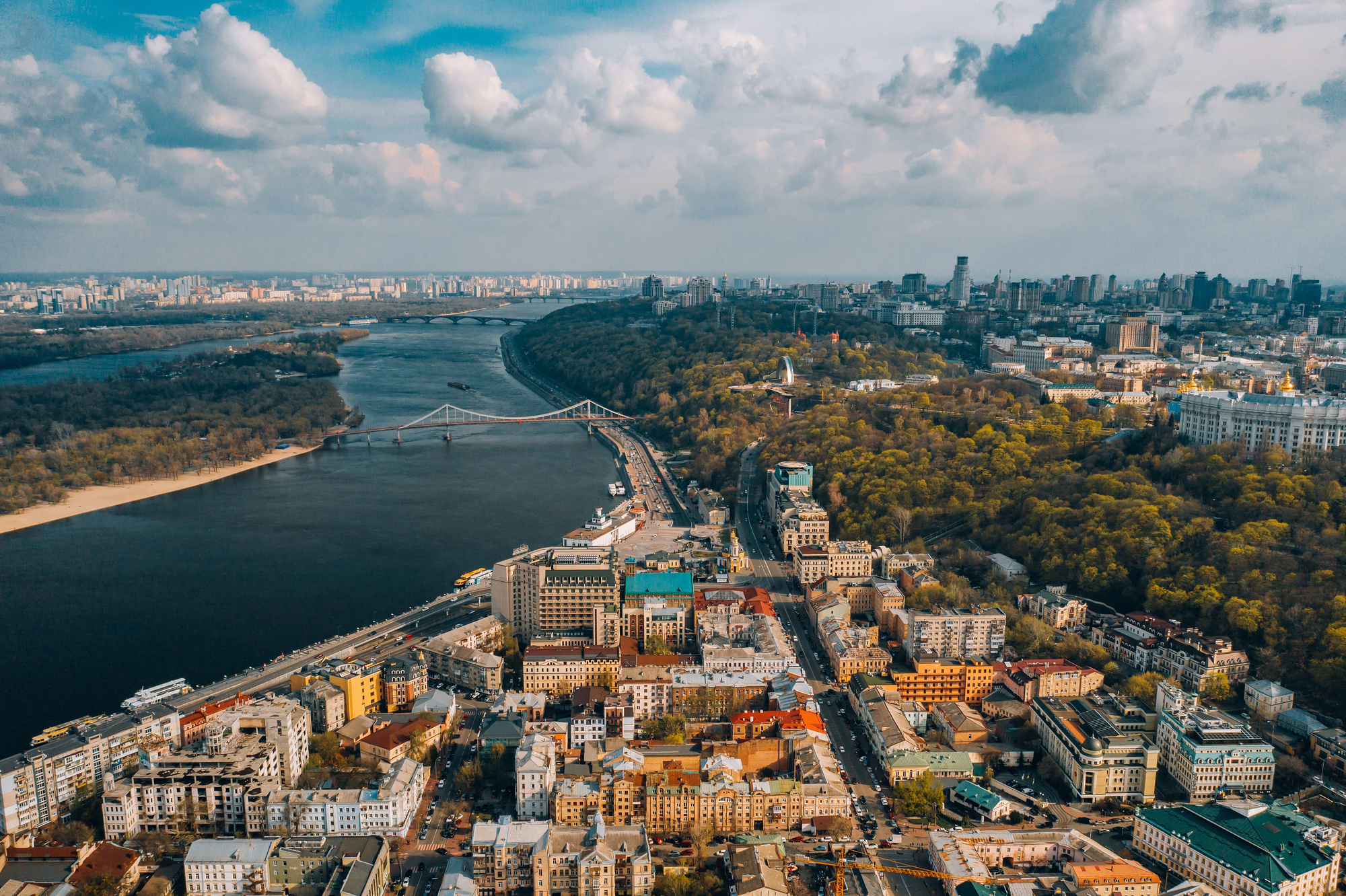According to Freedom House, global democracy has steadily declined since 2005, ending three decades of increasing democracy. Corruption is closely related to democracy: the more democracy, the less corruption. Since its Revolution of Dignity in 2014, Ukraine has been one of the few countries that have offered hope in both regards. It has advanced on the Transparency International Corruption Perception Index in rank from 146 in 2014 to 116 in 2021, and Freedom House considers it almost fully democratic.
Ukraine offers the greatest hope in the world for democracy and rule of law. It forms a potent threat against the authoritarian kleptocracy of Russian President Vladimir Putin. Facing this danger, Putin has started two wars of aggression against Ukraine. His greatest fear is that democracy and rule of law will proliferate into Russia. He has also realised that wars make him more popular at home and make it possible for him to impose more severe repression. Finally, he thrives on neo-imperialism.
If Russia wins this war, the whole international order established after WWII will have been demolished, and Russia will not stop with Ukraine. Presumably, Putin will opt for Moldova as the next target. Therefore, wars of aggression must never be allowed to succeed. Russia has committed tens of thousands of war crimes. They can only be punished if Ukraine wins. This is also a war between democracy and dictatorship, between good and evil. If Ukraine wins, Putin’s dictatorship is likely to collapse into a more liberal order, and his kleptocracy will probably collapse.
For all these reasons, Russia must be defeated. First, Ukraine needs to recover all territories that it has lost since 24 February 2022. Second, it must also regain the Ukrainian lands Russia seized in 2014, that is, Crimea and half of Donbass. Third, since Russia started its assault on Ukraine from the naval base Sevastopol it had leased from Ukraine, Ukraine must take it back. Fourth, all the Ukrainians citizens that have been deported to Russia must be allowed to return. Fifth, Russia must pay war reparations for all the damage it has caused to Ukrainian lives and property. President Volodymyr Zelensky has included all this in his ten-point plan for peace in Ukraine.
At present, Ukraine has an army of one million soldiers under arms. The vast majority are volunteers who want to defend their country. But Ukraine is utterly dependent on the supply of Western arms. Only gradually has the West started to understand that its interest lies in Ukrainian victory. For too long, many confused minds, including Henry Kissinger, called on Ukraine to negotiate with Russia and offer to give up territories that Russia had seized with force, killing, torturing, and raping the inhabitants.
Instead, the West needs to fully commit to Ukraine’s victory as defined by President Zelensky and Russia’s defeat. The West should no longer drip-feed Ukraine with arms but provide all the arms that Ukraine asks for as fast as possible. Ukraine has received HIMARS (high-mobility artillery rocket systems) from the US, which changed the war, and more long-distance precise missiles. Most recently, the main stumbling block was major battle tanks, which will now be delivered, but so late that they have hindered a Ukrainian winter offensive. The next big item is modern fighter planes, such as the F-16, Swedish Gripen, or French Rafale. Yet, Western arms donors still insist that Ukraine must not attack Russia with their arms, while Russia persistently terror bombs Ukrainian civilians from Russian and Belarusian territory. This makes no sense. The West must commit to Ukraine’s victory and offer all the means that are needed. After all, Western governments have not contributed a single soldier.
Arms are vital, but not enough. Ukraine runs a risk of winning on the battlefield but losing out economically. Ukraine’s GDP declined by slightly over 30% in 2022. The World Bank assesses that Ukraine’s reconstruction and recovery may cost as much as $650 billion. Russia is acutely aware of Ukraine’s economic weakness and does whatever it can to cause Ukraine higher costs. It has pursued severe economic sanctions for years. Just before its assault in 2022, Russia blocked all Ukraine’s Sea of Azov and Black Sea ports. Russia has systematically bombed Ukraine’s infrastructure, housing and hospitals.
The West must keep Ukraine afloat financially. Last year, the Ukrainian government asked for $60 billion in budget financing, but it received only $32 billion. It was forced to cut its budget as much as possible, but even so it had to turn to monetary financing, which boosted inflation to 27%. This year, the budget situation looks more promising. The government calls for $38 billion in budget financing, and the EU has committed $19 billion and the US $10 billion for the first nine months. Hopefully, the IMF will finally come in with a substantial programme with financing.
After the war has been concluded, or at least slows down, comes reconstruction. The Ukrainian government assesses that three years of reconstruction will cost $300 billion. Such a large amount of money requires good governance and the inclusion of all potential donors. The G7 leaders want to lead the coordination of financial support for Ukraine and they have made the operative decisions to proceed speedily. In late January 2023, the G7 representatives agreed on the governance of the coordination platform. They appointed a steering committee consisting of a triumvirate with a US, Ukrainian, and EU representative. They also agreed to set up a Secretariat at the EU in Brussels with an additional office in Kyiv. The G7 intends to invite all potential donors.
Three hundred billion dollars is an enormous amount of money. Obviously, Russia should be forced to pay reparations for all the damage it has caused, but it will not do so voluntarily. Fortunately, Russia does not need to agree because immediately after Russia invaded Ukraine, the G7 decided to freeze the international currency reserves of the Central Bank of Russia held in Western countries. These funds are very large. According to the public statistics of the Central Bank of Russia, on 1 January 2022 they amounted to $316 billion. Germany held $96 billion, France $61 billion, Japan $57 billion, the US $39 billion, the UK $31 billion, Canada $17 billion, and Austria $15 billion.
The Russian central bank reserves have many advantages. They are the indisputable property of the Russian Federation, which is directly responsible for the war crimes in Ukraine. They can be located. They are perfectly liquid, and require a minimum of administrative and legal work. The countries that hold and have frozen these funds should confiscate them through national legislation on the basis of Putin’s unprovoked war of aggression against Ukraine and his gross violations of international law. Unfortunately, Western central banks have so far refused to cooperate, or even acknowledge the size of the Russian reserves they hold. This must change. It is up to the relevant Western parliaments to legislate the confiscation of these funds.
Ukraine should not only carry out a reconstruction, but also modernisation and restructuring, EU accession and reform. In June 2022, the EU granted Ukraine membership perspective and made it a candidate for EU membership. The next step for the EU is to formulate a negotiation mandate and start membership negotiations. On 3 February 2023, European Commission President Ursula von der Leyen led a delegation of 15 EU commissioners to Kyiv for an EU-Ukraine summit, which issued a strong Joint Statement.
The EU repeated its commitment to Ukraine: “The EU recalled the decision by the European Council to recognise Ukraine’s European perspective and grant to Ukraine the status of a candidate country. The EU reiterated its commitment to support Ukraine’s further European integration.” Yet, the EU insisted: “The EU will decide on further steps once all conditions specified in the Commission’s opinion are fully met.” Fortunately, “Ukraine underlined its determination to meet the necessary requirements in order to start accession negotiations as soon as possible.” The EU proceeded to praise Ukraine for its considerable reform efforts.
The Joint Statement rightly focused on the most important judicial reforms: “We reaffirmed that comprehensive and consistent implementation of judicial reforms, in line with the recommendations of the Venice Commission, including the reform of the Constitutional Court and the selection procedure of politically independent and qualified constitutional judges, remains vital for strengthening Ukraine’s resilience and for progress on the enlargement process.”
The collective West and Ukraine are on the right track together. The West needs to deliver plenty of high-tech arms and funding, while Ukraine needs to be as successful as it has to date on the battlefield, and it is great that it now seems serious about key judicial reforms.
Attention
The author doesn`t work for, consult to, own shares in or receive funding from any company or organization that would benefit from this article, and have no relevant affiliations



